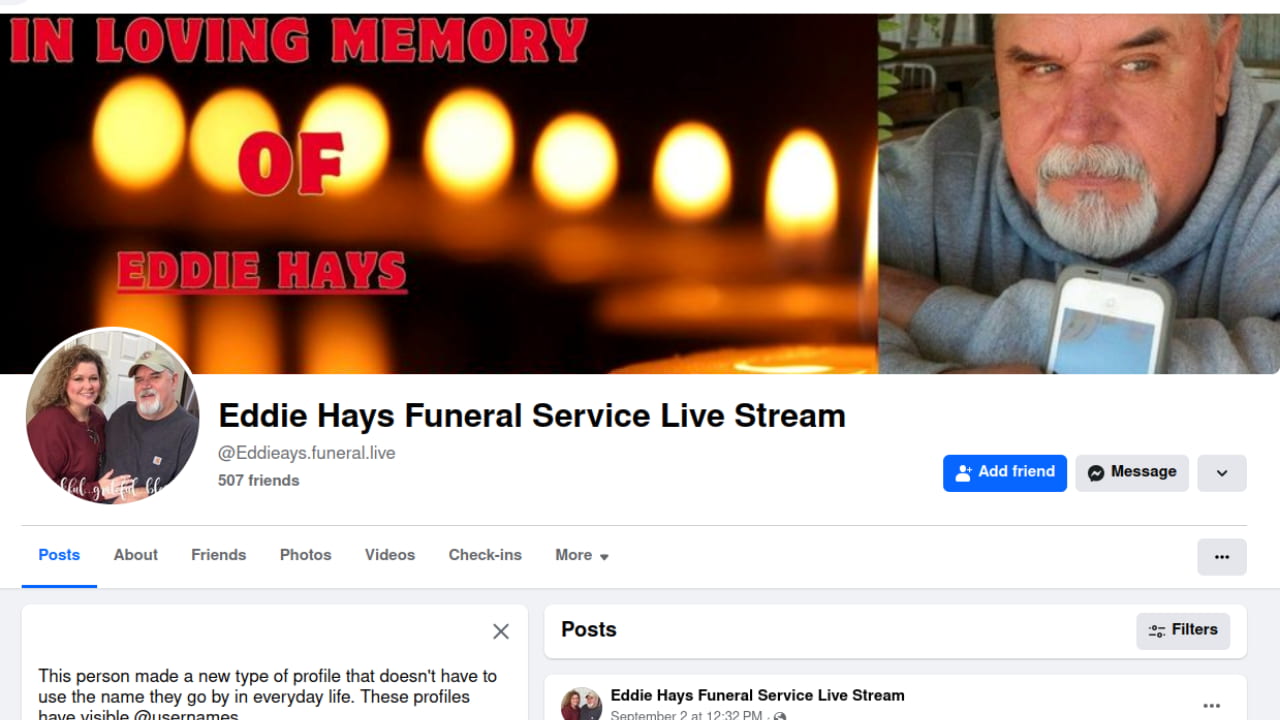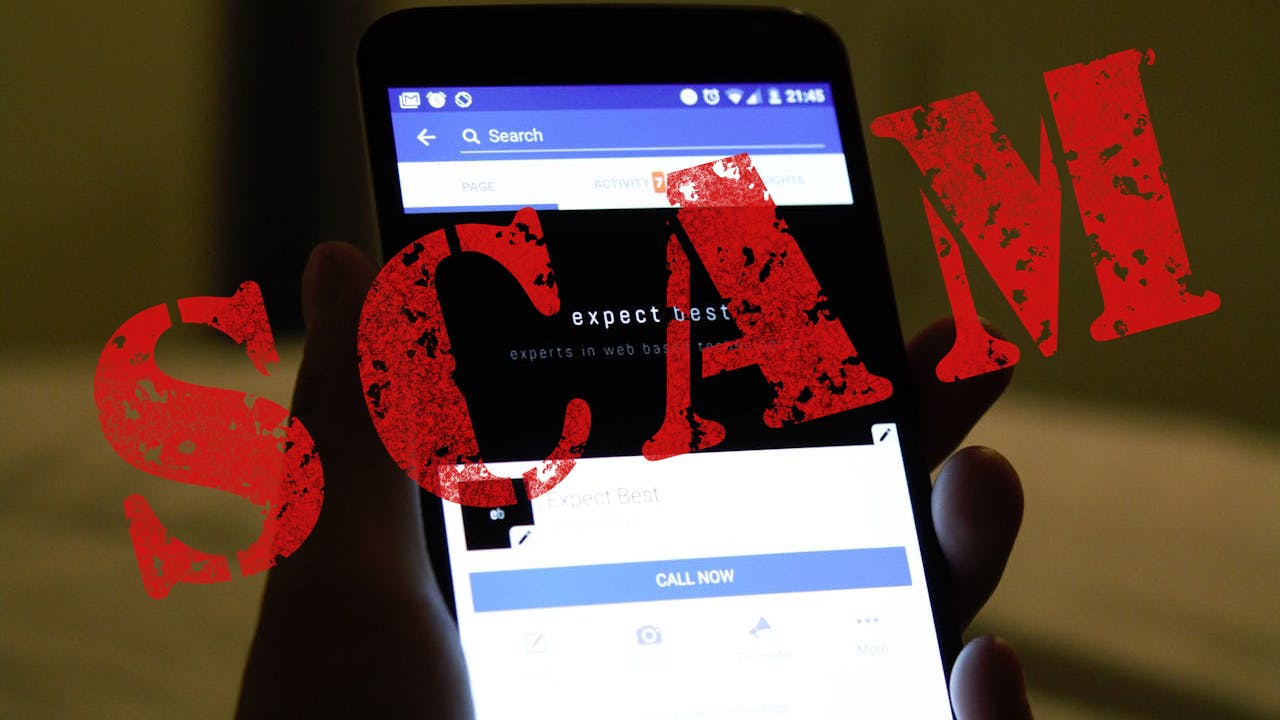Scammers use every possible method to deceive you, from social engineering through human verification pages to impersonating government agencies. You’d think there would be a limit to their tactics—certainly, they wouldn’t exploit someone’s death to scam those who are grieving. Unfortunately, you’d be wrong.
A new scam has surfaced where bad actors claim to offer video streaming of funeral services for the recently deceased. Those who follow the links for these streaming services are then prompted to provide their credit card information and asked to sign up for suspicious video streaming websites.
GET SECURITY ALERTS, EXPERT TIPS – SIGN UP FOR KURT’S NEWSLETTER – THE CYBERGUY REPORT HERE

How does the scam work
The news of this scam comes from KrebsOnSecurity, who heard from several victims. It typically targets the friends and family of the deceased. Scammers begin by creating a Facebook group for the person who passed away, listing the correct time and date of the funeral service. They then claim that the service can be streamed online by following a link, which leads to a page requesting credit card information.
It’s surprisingly easy to find these fake funeral groups on Facebook. Just searching for keywords like ‘funeral’ and ‘stream’ brings up tons of pages—some for past services, others for upcoming ones.
These groups usually have a photo of the deceased as the profile picture and try to send users to newly created video streaming websites that ask for credit card payments before you can watch. Even worse, some of them ask for donations in the name of the deceased.

KrebsOnSecurity
DON’T FALL FOR THAT “LOOK WHO DIED” FACEBOOK MESSAGE TRAP
But who are these scammers?
The scammers behind these fake streaming links operate primarily from Rajshahi, Bangladesh, under a group called apkdownloadweb. They have registered multiple domains, including livestreamnow.xyz, live24sports.xyz, and onlinestreaming.xyz. These websites appear to offer live streams for various events, including funerals and community gatherings, but they are simply traps designed to deceive users.
The individual associated with apkdownloadweb is Mazidul Islam, who has a background in running an IT blog. His LinkedIn profile reveals this connection. The email linked to their DNS provider is associated with another individual, Mohammod Mehedi Hasan, suggesting a network of scammers working together.
These scammers exploit social media, creating fake Facebook groups that promote links to their fraudulent streaming sites. They take advantage of genuine community events, misleading people into believing they can watch live streams by clicking on their links.

HOW TO PROTECT YOURSELF FROM SOCIAL MEDIA SCAMMERS
5 ways to protect yourself from Facebook link scams
1) Verify the source before clicking links: Always check the source of any link before clicking. Look for official announcements from event organizers or trusted news sources. If a link appears in a social media post, confirm it by visiting the organization’s official website or social media page. Scammers often use similar-sounding domain names, so double-check for spelling errors or unusual domain endings.
The best way to safeguard yourself from malicious links is to have antivirus software installed on all your devices. This protection can also alert you to phishing emails and ransomware scams, keeping your personal information and digital assets safe.
My top pick is TotalAV, and you can get a limited-time deal for CyberGuy readers: $19 your first year (80% off) for the TotalAV Antivirus Pro package.
2) Enable two-factor authentication (2FA): Activate two-factor authentication on your online accounts whenever possible. This adds an extra layer of security by requiring not just a password but also a second verification method, such as a text message or an authentication app. Even if scammers manage to get your password, they would need the second factor to access your accounts.
3) Regularly update your passwords: Change your passwords regularly and use strong, unique passwords for each of your accounts. This reduces the risk of multiple accounts being compromised if one password is stolen. Also, consider using a password manager to generate and store complex passwords.
4) Educate yourself about scams: Stay informed about common online scams and how they operate. Awareness is key to prevention. Research how scammers craft their messages and the types of offers that are usually too good to be true. Websites like the Federal Trade Commission (FTC) provide resources on identifying and reporting scams, and you can always rely on Cyberguy.com.
5) Report suspicious activity: If you encounter a fake streaming link or a suspicious post, report it to the platform where you found it. Most social media sites have mechanisms for reporting scams or fraudulent activity. Reporting helps keep others safe by alerting the platform to potential threats. Additionally, consider sharing your experience with friends and family to help them stay informed and cautious.
GHOST-HACKING: HOW TO PROTECT YOURSELF FROM SCAMS FROM BEYOND THE GRAVE OF THOSE YOU KNEW
Kurt’s key takeaway
Scammers don’t spare anyone, and this Facebook funeral scam should make that clear. They are willing to take advantage of someone’s death and profit from those who are grieving. While this is extremely galling, it serves as a reminder that we can’t let our guards down when navigating through the darkness of the internet. Always watch out for the links you click, even if they seem perfectly safe.
Do you think Facebook does enough to protect its users from cons like funeral scams? Let us know in the comments below.
FOR MORE OF MY SECURITY ALERTS, SUBSCRIBE TO MY FREE CYBERGUY REPORT NEWSLETTER HERE
Copyright 2024 CyberGuy.com. All rights reserved. CyberGuy.com articles and content may contain affiliate links that earn a commission when purchases are made.



1 comment
Want to start a good business? Find a way to trace the scammers back to their source and offer that person’s name and address for a price.